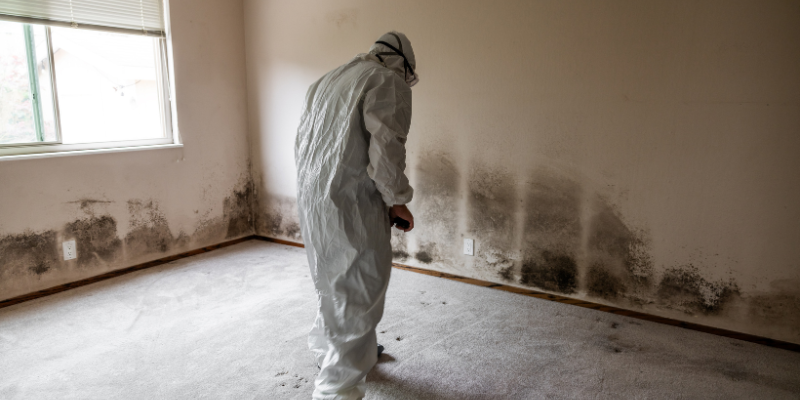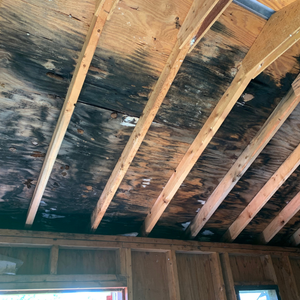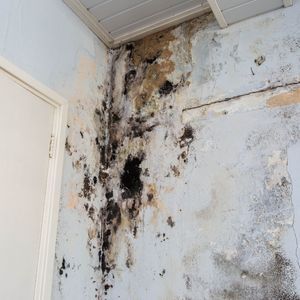
Real estate challenges are compounded when you have to deal with mold. When you are trying to sell a house in Gainesville, FL, you need to have a good grasp of how mold influences value and how mold affects buyers for a successful sale. Mold is a big health concern, and potential buyers will navigate it to lower offers if the problem is allowed to escalate. This guide from Yellow Card Properties will offer you some practical approaches to dealing with mold before you sell your house in order to lower the chance that buyers will negotiate your price. It does not matter whether you are dealing with your first sale as a seller or if you are a seasoned homeowner; this guide is here for you.
Key Highlights
- Mold significantly impacts property value, deterring buyers concerned with water damage and health risks.
- Florida law mandates disclosure of any known mold issues, ensuring transparency in real estate transactions.
- Failing to disclose mold can lead to legal consequences, including fines and lawsuits for misrepresentation.
- Selling as-is in a humid climate can attract cash buyers, but it usually reduces the offer price significantly.
- Effective mold remediation involves professional assessment, addressing moisture sources, and transparent documentation.
Understanding Mold Issues in Gainesville Real Estate
Managing mold concerns in Gainesville’s real estate market can be particularly challenging for sellers. The climate’s humidity increases the already challenging factors mold presents for homeowners. Mold problems on the building’s interior and exterior can lead to the depreciation of the building and greatly deter prospective buyers. Buyers and sellers need to understand how mold growth affects the property value and the typical problems climate humidity presents in Gainesville. Understanding these issues can help sellers organize the necessary improvements and deal with mold problems to maximize their value in the sale.
| Key Mold Challenges | Impact on Property Value | Remediation Strategies | Buyer Considerations |
|---|---|---|---|
| High humidity levels | Decreases market value by up to 10% | Install dehumidifiers and enhance ventilation | Inspect thoroughly during rainy seasons |
| Poor ventilation in older homes | Potential for higher repair costs | Improve air circulation and repair HVAC systems | Factor potential remediation costs into budget |
| Water intrusion from leaks | Can lead to costly structural damage | Seal leaks and waterproof basements | Request a comprehensive mold assessment |
| Lack of regular maintenance | May reduce buyer interest | Schedule regular inspections and timely repairs | Evaluate the property’s maintenance history |
This table encapsulates the critical aspects of managing mold issues in Gainesville’s humid climate and their implications for real estate transactions.
The Impact of Mold on Property Value

The value of real estate in Gainesville is affected by the presence of mold in the property. Houses with mold problems tend to lose their appeal because prospective buyers anticipate the headaches of water damage and mold-related health risks. This includes the compromised structural and aesthetic conditions of the property. Problematic mold conditions can discourage prospective buyers because they imply that the home is poorly maintained, resulting in lower offers and longer selling periods. Sellers, in particular, may find themselves in a difficult situation regarding their ability to sell the property without expensive remodeling.
To comprehend these implications fully, sellers need to work closely with mold remediation experts and real estate professionals to evaluate and address damages associated with mold. While certain buyers might be inclined to purchase properties with disclosed mold issues at a discount, most buyers usually avoid such properties, preferring homes that are ready to occupy and do not involve complex problems. Hence, resolving mold problems before marketing a property will likely save sellers from extensive negotiations and devaluation of the real estate. Due to Gainesville’s high humidity, sellers need to be especially attentive since the effects of mold on property value will likely be greater than in more arid regions.
Common Mold Growth Challenges in Humid Climates in Gainesville FL
Gainesville is home to challenging climate conditions, problematic for homeowners as well as professionals tasked with mold remediation, for which a humid subtropical climate is highly conducive. Persistent humidity is a problem. So is mold management. Problems with mold are often water-related, sometimes due to plumbing issues, or undetected Seattle-style roof leaks during the rainy season. Problems are exacerbated during the rainy season. In warm, humid conditions, mold growth is quick and unhindered, spreading to other areas and causing damage to the property, and creating a potential health hazard.
Remediation of humid Gainesville climate problems is not as simple as effective surface cleaning. Sellers have to find all the potential sources of water, and, after professional remediation has been completed, help control indoor moisture by using dehumidifiers. Sellers must do regular proactive control to help avoid a problem of uncontrolled mold growth, which does not repeat. Successful control of mold enables a seller to market a property with higher confidence, helping the property to appeal to a more diverse buyer range.
Sellers in Gainesville must understand not only the challenges posed by mold but also the visible and concealed sides of mold development. This understanding helps in safeguarding the value of the property and also in meeting the buyers’ needs and legal requirements. Given the unique relationship mold problems have with the dynamics of the property market, caretaking and preventative measures should be appropriately maintained in order to facilitate smooth property dealings.
Legal Obligations: Florida Law and Mold Disclosure
Selling a house in Gainesville requires an understanding of the legal implications of the disclosure of mold in Florida. The sellers need to know the legal obligations of Florida’s disclosure law concerning the existing mold issues. This promotes absolute visibility in real estate dealings and minimizes the possibility of lawsuits. Sellers need to protect their property and the confidence of buyers by fully discussing mold issues. This part will discuss the consequences of not disclosing issues, as well as the legal obligations of Florida concerning the disclosure of mold. For more insight into real estate timelines, learn how long after an appraisal can you close in Florida to better plan your sale and avoid delays.
What Florida Law Requires for Mold Disclosure
It is important for mold disclosure laws for sellers to understand in Gainesville. Property sellers in Florida must disclose known mold issues to buyers to legally protect buyers from problems with mold health issues. Sellers must disclose any damage, mold conditions, and any repairs done to the mold. Suggest sellers conduct property inspections for any legal mold issues.
Moreover, the law requires honesty during the real estate disclosure processes. Sellers must correctly complete and, to the best of their ability, document any and all disclosure forms pertaining to the remediation of any mold issues that may have been addressed. Doing so is vital for earning the trust of prospective buyers and, subsequently, for a smooth transaction. Ignoring Florida’s mold disclosure requirements can lead to complications during the Gainesville selling process, especially given the area’s warm, humid climate. For buyers, unresolved mold problems can lead to a prolonged period of unsold, undesirable real estate. Florida’s laws outlining the disclosure of unsightly mold are designed to minimize the risk of litigation for both buyers and sellers.
Consequences of Failing to Disclose Mold Issues

In the Gainesville real estate market, sellers can face serious ramifications for failing to disclose mold issues appropriately. The non-disclosure of mold issues violates Florida law, potentially resulting in substantial fines, loss of buyers, and litigation. Undisclosed, non-contentious mold issues can trigger lawsuits, loss of money, and reputational damage post-closure of the real estate transaction. The unsatisfied buyers—per sellers’ claims of misrepresentation and breach of contract—will seek legal recourse and cover the costs of mold damage remediation and health issues, mold exposure litigation.
A tarnished reputation can lead to loss of profitability and marketability. The real estate market and negative feedback loops are all it takes to kill a deal and to litigate over an unsatisfied buyer. The seller’s time and money can be spent in a more profitable way, unlinked to the litigation and resolution of legal disputes. When the sellers of real estate in Gainesville issue warnings of exposed mold, it prevents the litigation from flowing and protects the legal and market integrity of the seller.
Selling a House As-Is in the Presence of Mold in Gainesville FL
Selling a house in Gainesville, Florida, where mold issues exist, complicates the situation even further, especially when trying to understand the implications of selling the house as-is. Gainesville has a subtropical, humid climate, where mold issues can occur and become exacerbated. Knowing the advantages and disadvantages of selling a house as-is informs the seller’s decision-making. In Florida’s real estate market, the condition of the property, the willingness of prospective buyers, and the overall market situation can all influence the success of this approach. In many cases, working with investor home buyers in Gainesville or nearby cities can be a practical solution, as they are more open to purchasing homes with mold issues and can provide quick, as-is cash offers that align with a seller’s goals.
Pros and Cons of Selling A House As-Is
There are pros and cons of selling a house with mold. One of the pros is selling faster. You could sell a house in any condition to investors looking to bypass mold remediation and purchase properties. Cash investors looking to flip houses are especially known for bypassing cash flow-generating properties. They buy houses quickly and bid cash in a competitive market. By repositioning the house to appeal to investors looking for a bargain, they are more willing to purchase the house even with mold.
There are, however, definite cons with this strategy. Selling a house with existing problems means the buyer will inherit the existing problems and will sufficiently reduce their offer, as remediation costs will always be heavily considered. Buyers will be especially cautious in hot and humid Gainesville. It is also probable that the selling time will be extended longer than is expected due to the remediated structure and the number of existing problems. In this scenario, no buyer is better than a house that is ready to be moved into. Cumulatively, the existing problems will slow the sell-out process, especially in humid conditions where mold will be allowed to proliferate.
Nevertheless, from a legal standpoint, even an as-is transaction does not relieve any seller from Florida’s mold disclosure obligations. Sellers are required to disclose any known legal mold issues to remain legally unharmed. This is required to keep the transaction transparent, which prevents any legal disputes down the road due to claims of misrepresentation. In sum, while the as-is sale strategy is beneficial due to lower costs and faster selling procedures, the seller needs to consider the probable financial loss and legal ramifications. Those looking to pursue this strategy in the Gainesville real estate market will need to consider these issues.
Practical Steps for Managing Mold During the Selling Process in Gainesville FL
It can be intimidating to deal with mold while selling a property, especially in a moisture-heavy real estate area, like Gainesville. Mold impacts the value of the property, makes the deal harder, and forces the seller to be extra careful. There is no way around it; to avoid delaying the sale, the seller will need to take reasonable steps to manage the mold and keep the sale legal. This part focuses on effective strategic remediation the seller can take, while underscoring the need for professional treatment and prevention to attract prospective buyers and appeal to the property. For homeowners who prefer to skip repairs and still sell quickly, working with a company that buys houses in Hawthorne or nearby cities can be an ideal solution, offering fair cash deals even for homes with mold concerns.
Effective Mold Remediation Strategies for Sellers in Gainesville FL

Effectively implementing mold remediation strategies is vital for sellers looking to uphold property value and buyer confidence. First and foremost, comprehensive assessments by certified mold remediation specialists are essential to understanding the full scope of an issue and recommending specific resolutions. Professional remediation is necessary to ensure complete mold removal, including identifying and addressing mold that is concealed and aggravated by the humid conditions of Gainesville, Florida. If these issues are addressed early during the selling process, the property is more likely to attract buyers, and sellers can avoid more serious health issues.
In the remediation of the problem, addressing the specific issues of leaks and lack of ventilation must be prioritized. Installing dehumidifiers is an effective way to reduce the possibility of mold growth and improve indoor air quality. Recording your efforts and repairs made to the property demonstrates to buyers that you are proactive about property upkeep. This improves buyer confidence and allows for easier negotiations.
Marketing materials showcasing a property free of mold will distinguish it from the competition in Gainesville. Highlighting recently completed remediation and maintenance efforts will help buyers feel confident about a property being move-in ready — and might bring in cash buyers looking for rapid closings. All in all, properly countering sellers’ risks posed by mold will capture legally required and commercially reasonable market opportunities in Florida in a way that enhances the seller’s competitive position in real estate.
Based on the outlined strategies for mold remediation, consider these actionable tips to optimize your selling efforts and enhance property appeal:
- Schedule regular inspections to catch mold issues early and address them promptly.
- Invest in high-quality ventilation systems to manage humidity effectively.
- Use eco-friendly cleaning products to maintain a healthy indoor environment.
- Highlight energy-efficient upgrades that also aid in moisture control.
- Promote a healthy living space by showcasing recent improvements in air quality.
- Engage with buyers by offering transparency into your mold remediation process.
- Consider staging to visually demonstrate a clean and mold-free home.
These tips can strengthen your property’s market position by showcasing proactive maintenance and care.
When selling a property in Gainesville, FL, with mold, a well-thought-out plan can preserve the value of your asset while getting you a good deal. Being familiar with local laws, taking care of the mold problem, and collaborating with real estate experts will help you manage the situation. Remediation of mold problems, along with honest disclosure, will help you achieve a successful transaction. Home sellers who want to sell their homes quickly can consider offering prospective buyers a pre-sale mold inspection to increase buyers’ peace of mind. Working with Gainesville mold professionals can help you increase your property value and develop an effective pre-emptive selling strategy to maximize the potential of your property in the real estate market.
Do you need to sell a house with mold? Avoid costly repairs, skip the stress of remediation, and sell quickly for cash. Yellow Card Properties is here to help. We buy houses as-is, including those with mold issues, offering fair cash offers while handling all the details to make the process seamless. Ready to sell or have questions? Contact us at (904) 539-4420 for a no-obligation cash offer. Get started today and turn your property into peace of mind!
Helpful Gainesville, FL Blog Articles
- Selling Inherited Real Estate With Multiple Owners In Gainesville, FL
- Strategies To Prevent House Foreclosure In Gainesville, FL
- Sell Your Home By Owner In Gainesville, FL
- Can Your HOA Really Foreclose On Your Gainesville, FL Home?
- Does Selling Your House In Gainesville, FL Affect Your Medicare Coverage?
- Understanding Gainesville, Florida, Property Tax Rates
- Essential Guide To House Appraisals For Divorce Settlements In Gainesville, Florida
- How To Navigate Selling A House With Unpermitted Work In Gainesville, FL
- Fixing Up a House to Sell in Gainesville, FL
- Sell Home to Pay Off Debt in Gainesville, FL
- Should I Replace My Roof Before I Sell My House in Gainesville, FL?
- Do All Heirs Have to Agree to Sell Property in Gainesville, FL?
- How Long Can a Seller Stay in the House After Closing in Gainesville, FL
- Can I Sell My House in Gainesville, FL with a Pending Insurance Claim?

